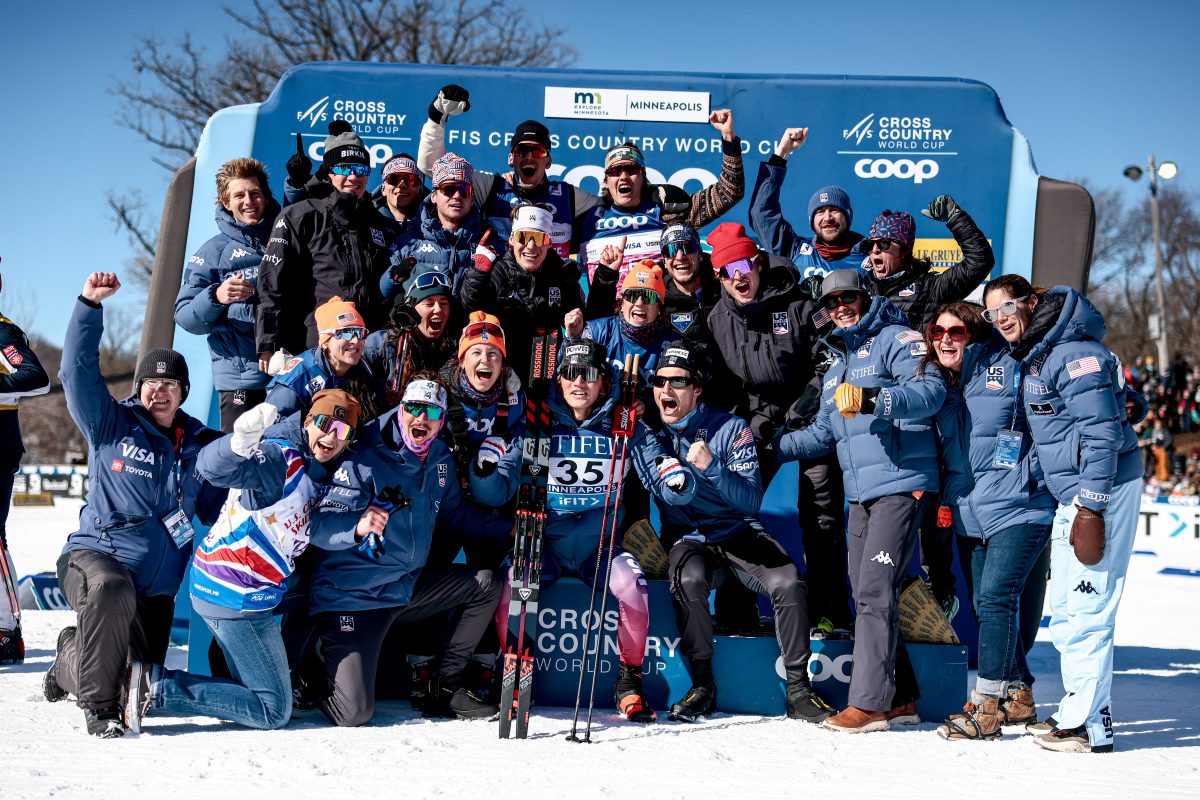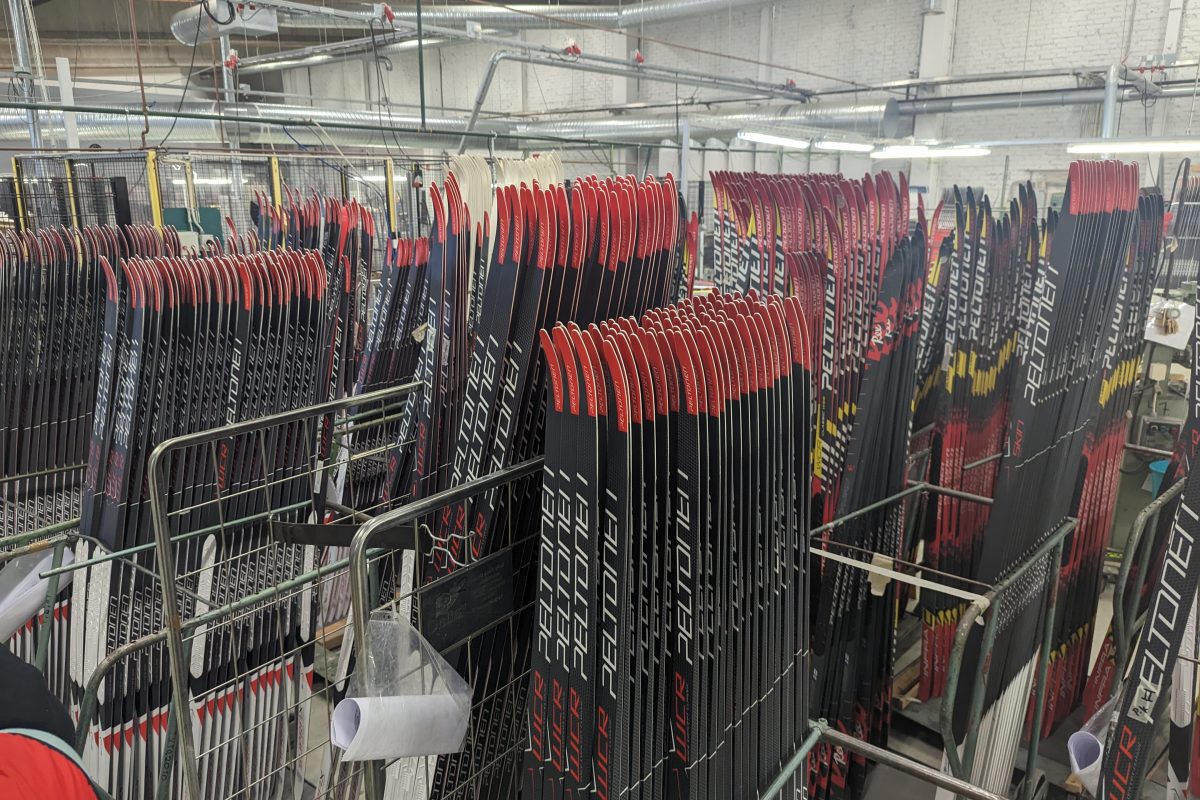GENEVA, Switzerland— After revelations that there was widespread, systematic doping in Russian track and field, a World Anti-Doping Agency (WADA) Independent Commission recommended that the Russian athletics federation be suspended by the International Association of Athletics Federations (IAAF).
The findings were a confirmation of the worst fears for many in the sports community, and a sickening realization that suspicions had been well-founded.
“It confirmed a lot of what we had heard over the last couple of years,” said Travis Tygart, the head of the U.S. Anti-Doping Agency (USADA), in a phone interview. “And we saw results coming out of Sochi and other Games that seemed to suggest a change in attitude on this issue. That’s why we were pushing hard back in December to open this investigation.”
WADA itself has pledged to consider the Commission’s suggestions, including to offer more protections for whistleblowers and to place a greater priority on compliance from all member federations.
And in a reversal, IAAF head Lord Sebastian Coe said that the IAAF would consider suspending the Russian federation. Previously hostile to the allegations, Coe has given the Russians a week to respond to the report.
Independent Commission head Richard Pound believes that if Russia were to become compliant in the next 12 months, there is a way forward for Russian runners to compete at the 2016 Olympics.
Although he asserted that this would be a lot of work and Russia would have to start right away – something that appears doubtful at the moment – even the possibility of Russian track and field athletes winning medals in Brazil is leaving a foul taste in some observers’ mouths.
That’s because the commission itself admitted that the London 2012 Olympics had been “sabotaged” by Russians who were routinely doping.
“We had reports of athletes in London going back to Moscow to be tested, and then came back to London when it was clear,” Pound said.
The second part of the Independent Commission’s investigation, which is expected to be made public by the end of the year, will investigate blood tests collected between 2001 to 2012. So it is almost certain at this point that results from not only London, but also previous Olympic Games are affected by doping athletes.
Among the many disastrous consequences of such a situation, permanent damage has been done to those athletes who had not been doping. They were deprived of results, earnings, and sponsorship opportunities.
“The real tough thing is that when there’s money and prizes involved, often the money is gone, it has all been spent,” Pound said.
With little chance to recoup their financial or emotional losses, it’s understandable that athletes – and their fans – should be upset if the same athletes, coaches, and officials which sabotaged past Games are back on the Olympic track in 2016.
Tygart, for one, believes that it’s time for a more punitive phase of WADA’s history to begin.
“It’s a disappointing situation,” Tygart said in a phone interview. “The Olympic dream has been turned into a nightmare for many… those who are not Code compliant need to be kicked out of international competition. All of those fall under the Russian sports minister. They should be kicked out. While we do want the house to be cleaned up, we also want to see justice served. If there are no consequences, then other countries will continue to do this until they get caught.”
Even Pound, who several times said that he hoped “Russia will seize the opportunity to take a lead and move forward”, acknowledged that harsher punishments were needed.
“That’s your nuclear weapon,” he said of the possibility that Russians be barred from Rio de Janeiro. “Say unless you get this done, you will not be in Rio… in my country, that threat got it done. With Ben Johnson in 1988.”
But so far, the threat of investigation has not yielded much progress.
Russian track and field staff did not attempt to reform or hide their behavior, even after the WADA investigation had begun. During a WADA mission to a racewalking training camp in Saransk, Russia, coaches denied that athletes were present. Once doping control officers found them, nine of those athletes produced positive tests.
“The dates of the reported events at the Saransk training camp make it clear that, contrary to some assertions, the practice of doping in athletics in Russia remains very current, even following the ARD documentary,” the Independent Commission states in its report.
There was also blood transfusion equipment at the Saransk training center. Blood transfusions are a prohibited method in the WADA Code.
In meetings with the Russian Minister of Sport, Vitaly Mutko, Pound said that Mutko still seemed to hope for a different report than the one the Commission would deliver.
“I think it is appropriate to say that the commission organized a special meeting with the Russian minister of sport,” Pound explained. “In that meeting he invited us to make recommendations to ensure that Russia could contribute to doping-free sport… but we advised the ministry in advance that he would not likely be pleased with many of the findings in the course of our investigation.”
This level of denial has continued, as Mutko said that Russia did not have a doping epidemic.
“We don’t deny that we have problems but they exist around the whole world; we have the same percent as all countries do,” he told Interfax.
The Russian athletics federation’s lawyer, Artyom Patsev, used a similar line.
“Let’s not mince words,” he told ria.ru. “American, Canadian athletes, they’ve caught even more of them than Russians. They engage in doping literally every year. They catch athletes. But there wasn’t such an extensive campaign. Why not?”
Analysis disproves his statement: the New York Times published a graphic showing that 11.5% of all positive tests in 2013, across all sports, came from Russia. That made the country the leader, by far.
Tygart suggested that to ensure appropriate penalties are taken, athletes need to speak up and lobby the relevant organizations.
“They have every right to be angry,” he said. “They have to stand up to ensure justice is service from every side… But all those who value the Olympic values have to also stand up. This type of corruption and intentional systemic state supported doping to defraud the world, has to be fought. Fair play is what the Olympics stand for. We can’t sit idly by.”
Could he see a situation where, without believable progress by Russia, other athletes refused to compete against them?
“I hope it doesn’t come to that, but if you’re a clean athlete, then your Olympic dream has just been shattered,” Tygart responded. “So what you hope is that those who believe in Olympism, the same basic tenets of fair play – rally around it and ensure that those who don’t aren’t allowed to compete… Particularly the clean athletes deserve it. Anything less than that is failing.”
The only way forward, he suggested, is to set up truly independent anti-doping organizations in Russia and in track and field.
Part of the Commission’s report discussed how the Russian Anti-Doping Agency, RUSADA, was pressured and controlled by the Ministry of Sport.
“The report clearly demonstrates that it’s an attitude of win at all costs,” Tygart said. “We’ve seen it here in the US. The system can’t be such that it allows it to survive. You have to have the most independent system to ensure that those who try to break the rules can’t do it successfully.
“I think a team of international experts his to come in for a period of time to oversee the changes – to give confidence to the rest of the world that they are clean, if they are ever allowed to compete again,” he concluded.
Chelsea Little
Chelsea Little is FasterSkier's Editor-At-Large. A former racer at Ford Sayre, Dartmouth College and the Craftsbury Green Racing Project, she is a PhD candidate in aquatic ecology in the @Altermatt_lab at Eawag, the Swiss Federal Institute of Aquatic Science and Technology in Zurich, Switzerland. You can follow her on twitter @ChelskiLittle.



